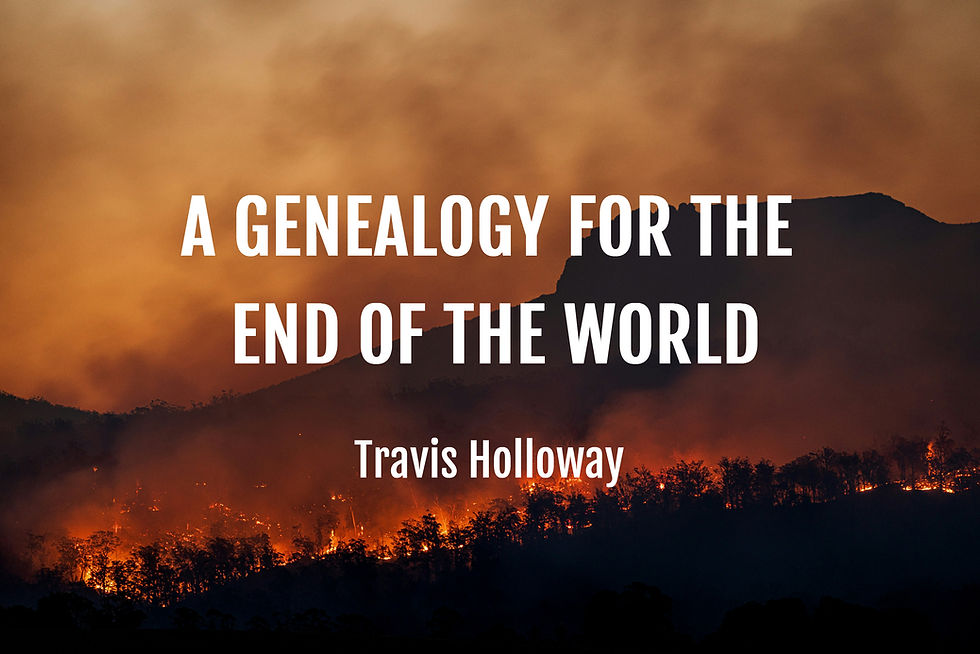"Interrogating Lived Experience": An Essay by Anya Daly (Keywords: Phenomenology; Buddhism; Merleau-Ponty)
- Anya Daly
- Oct 13, 2021
- 6 min read
Updated: Aug 30, 2024

What do we do when we do philosophy? And what should we do? What method in philosophy is likely to resolve puzzles and lead to reliable, insightful and potentially useful “truths”? As Stephen Mulhall has explained in his 2014 Grahame Lock Memorial Lecture, ‘in no subject other than philosophy is the basic nature of the subject (and so the core self-understanding of its practitioners) perennially not only open to question but actively in question.’ Mulhall also gives an analysis of the muddled and abysmal designations of “analytic philosophy” and “continental philosophy”, which have contributed significantly to the often vexed exchanges between philosophers who assert adherence to either of these camps; the upshot being that the designations themselves are somewhat bogus and confused oversimplifications. And so it is apposite that The Philosopher and its new editor, Anthony Morgan, set the theme for this first issue under his stewardship as doing philosophy. In what follows, I will give a brief account of the questions which are motivating my current research and how I go about addressing them.
My research principally draws on the tradition of phenomenology, and there is also a strong undercurrent of Buddhist Philosophy that informs the direction of my thinking, which I am now beginning to make more explicit in my writings. I am drawn to philosophy which gears into the world, and so I have keen research interests in cognitive science, the philosophy of perception, psychology, the philosophy of psychiatry, philosophy of mind, aesthetics, ethics, feminist philosophy, among others. Across all of these domains I use the methodology and rich resources of phenomenology as the basis for my interrogations. What is phenomenology? As my “philosophical muse”, Maurice Merleau-Ponty, writes in the preface to The Phenomenology of Perception: "Phenomenology is the study of essences; and according to it all problems amount to finding definitions of essences; the essence of perception, or the essence of consciousness, for example. But phenomenology is also a philosophy which puts essences back into existence, and does not expect to arrive at an understanding of man and the world from any starting point other than that of their “facticity”. It is a transcendental philosophy which places in abeyance the assertions arising out of the “natural attitude” [i.e. those commonsense assumptions and vested theoretical frameworks which condition our way of engaging with experience and the world], the better to understand them; but it is also a philosophy for which the world is always “already there” before reflection begins – as an inalienable presence; and all its efforts are concentrated upon rediscovering this naïve contact with the world, and endowing that contact with a philosophical status." The world is “already there” before reflection begins and this is the launching place of philosophy; philosophers are driven to understand the hidden structures of experience and the world. This is no mere common curiosity; there is a voracity about this philosophical curiosity.
Unlike scientists who also seek to understand hidden structures, such as the biologist with regard to the biosphere, the philosopher aims to explore even below those levels; not just to find causal and mechanistic explanations, but to interrogate ontologies, reasons, meaning, purpose and value underlying and supporting the structures. Importantly, for phenomenologists, there is no pretence that any absolute or objective stance is possible. The “objectivism” of phenomenologists is more one of consensus; that you will see or understand what I see or understand if you are situated where I am. And at the same time the world that is interrogated is not a fixed, closed system – it is dynamic and emergent. Thus, it is an objectivism that is progressive and always up for negotiation. The claim of some philosophers and scientists that they can assure an absolute objectivity is rejected by phenomenologists because it is impossible to eliminate the subject, and all events (including scientific experiments) carry a date and location. There are no disembodied a-cosmic subjects; subjects are always situated temporally, physically and culturally.
We can say that because phenomenology begins with an interrogation of “lived experience”, it is a bottom-up philosophy beginning with the subject, here and now. So too, Buddhist Philosophy is also a bottom-up philosophy (or way of life) that asks that we examine our first-person experience as the starting point for our investigations. So there is a fundamental compatibility in methodology, and although phenomenology has no soteriological pretensions there is textual evidence to suggest that Edmund Husserl and Maurice Merleau-Ponty both recognized its transformative value.
In Buddhist philosophy we find distinctions in levels of knowledge or understanding. The first level is what is called “the wisdom of hearing” and this refers to intellectual knowledge – when you hear or read something, you “get it”. What is then required is a deeper understanding, and this is what is referred to as “the wisdom of contemplation” – not only do you “get it” but you also understand the deeper dimensions and the hidden structures. The third level is called “the wisdom of meditation”, the point at which the earlier understandings become integrated within one’s consciousness and transform one’s manner of engaging with the world and with others. So this last level is the transformative aspect.
We can apply this analysis to doing philosophy. The first level allows us to regurgitate the necessary formulae and definitions, and give an account of our reasoning such as in an exam situation; we are able to manipulate the knowledge somewhat like a Rubik’s Cube and it can look very clever. At the second level, our use of this intellectual knowledge becomes deeper and more versatile; the understandings generate possibilities and we begin to see links, relations and correspondences previously hidden; this is the mark of a creative thinker. Finally, at the third level of knowledge, philosophy can challenge our manner of being in the world and the questions of ontology and ethics become pressing; it is no longer sufficient to be clever or creative. The urgency of addressing the deep philosophical questions weighs heavily on the thinker and engenders an insatiable passion for inquiry. At this point, you are lost: you have become yet another victim of philosophy!
One of the issues that is obsessing me at the moment is the nature of perception and its relation to cognition. By using the phenomenological resources of Merleau-Ponty to articulate an understanding of perception, I aim to bring this into conversation with recent findings in neuroscience – notably the ground-breaking work of Melvyn Goodale and David Milner who discovered that there are two streams of visual perception. Having clarified the correspondences between the philosophy and the science, I aim to undercut the assumptions underpinning prominent ongoing debates concerning the cognitive penetrability of perception.
To sum up this line of argument, the claim is that perception is penetrated by contextual factors, culture, language, emotion, memory, expectation, belief and mood. Our perceptions of objects and other people are imprecise or inaccurate because of these penetrations, as evidenced by, to give two well-known examples, experimental discoveries of the misperception of the colour of objects due to expectations or the misperception of others as menacing due to racist beliefs. So, the question usually posed is: do we ever have pure veridical perceptions?
My argument is that perception is ontologically basic and that cognition is a second-level order of knowing that depends on perception even in its most abstract employment (e.g. geometry). Another line of objection to these debates is my claim that the metaphor of penetration is confusing the issues and is fundamentally erroneous. The metaphor of obscuration allows me to argue that cognitions can obscure perception, but they do not penetrate perception. This explains why cognitions such as expectations can “colour” our perceptions of things and people, and that it is possible to cognitively correct these expectations, thereby changing our perceptions. It also explains the persistence of certain illusions, such as the moon looking larger at the horizon; these illusions are immune to any so-called cognitive correction and, furthermore, it more accurately accounts for learning.
This notion of obscuration is also deployed in Buddhist philosophy, which proposes that our mind and knowing capacities can become obscured by negative or erroneous cognitions which then distort how we see others and our world. The texts liken this to a lens that needs cleaning. While valid cognitions can displace erroneous cognitions and allow us to see more accurately, these cognitions also to an extent obscure our direct perception of reality. So the ultimate aim in certain Buddhist meditation practices is to eliminate all cognitions and attain a direct access to experience and the world. While my thinking has certainly been informed by such Buddhist analyses, I have sought in the paper I am writing to find textual justification and elaborations in the work of Merleau-Ponty (principally).
A useful strategy in beginning to tackle any philosophical issue is to consider the convergences and divergences between different philosophical traditions. Another is to ask: what is the explicit or implicit ontology that underpins the views I am challenging? Inevitably, if I find that this ontology is either dualist or reductive-materialist (like the currently very popular neurocentrism in philosophy of mind), then I have a repertoire of critical interrogations that I can bring to bear on the analysis from the perspectives of phenomenology and Buddhist philosophy (both of which uphold non-dualist ontologies).
Because phenomenology and Buddhist philosophy have important commonalities, I have found that bringing the ideas of one tradition into communication with the other is a very fruitful strategy. This is what I have sought to do with the perception paper I am currently working on.
Anya Daly is an honorary fellow at the University of Melbourne: ucd.academia.edu/AnyaDaly
From The Philosopher, vol. 107, no. 1 ('Doing Philosophy').
Read more articles from The Philosopher, purchase this issue or become a subscriber.






